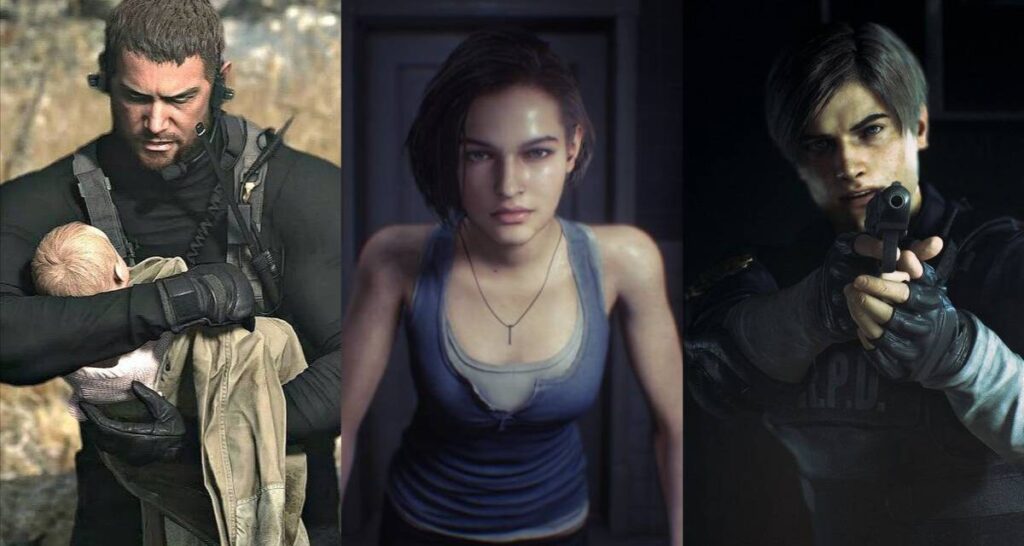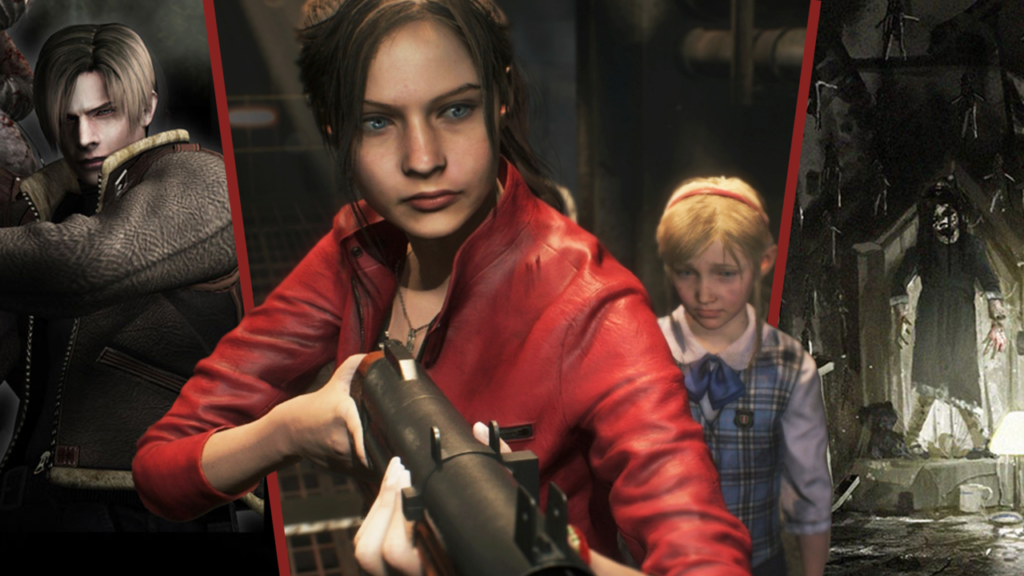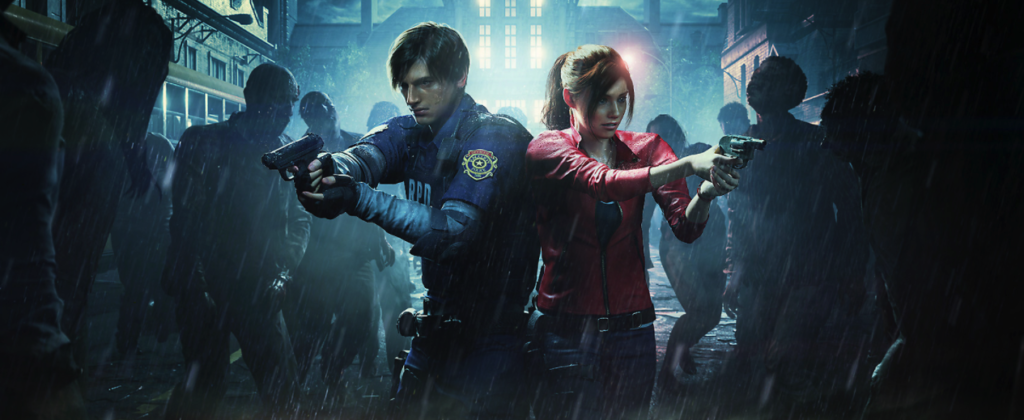Since its inception in 1996, the Resident Evil franchise has stood as a beacon of innovation and influence within the gaming industry. Created by Shinji Mikami and developed by Capcom, this iconic series has not only redefined the survival horror genre but has also left an indelible mark on popular culture as a whole. Through its gripping narrative, immersive gameplay, and groundbreaking mechanics, Resident Evil has captivated audiences worldwide and continues to shape the landscape of interactive entertainment.
Evolution of Horror: Redefining the Genre

Resident Evil emerged at a time when the gaming industry was ripe for innovation. By blending elements of horror, action, and puzzle-solving, the franchise introduced players to a new breed of gaming experience. The original game, set in the ominous halls of the Spencer Mansion, established the template for survival horror gameplay, challenging players to conserve resources and navigate treacherous environments while confronting grotesque adversaries. With its atmospheric tension and cinematic presentation, Resident Evil set a new standard for interactive storytelling, inspiring a generation of game developers to explore the potential of horror in gaming.
As the series evolved, so too did its approach to horror. Resident Evil 4, often hailed as a masterpiece of the medium, revolutionized the genre with its over-the-shoulder perspective and dynamic combat mechanics. By prioritizing action without sacrificing suspense, the game redefined the expectations of horror gaming, attracting a wider audience while retaining the essence of its predecessors. Subsequent entries continued to push the boundaries of horror, from the eerie isolation of Resident Evil 7’s Baker estate to the sprawling apocalyptic landscape of Resident Evil Village. Throughout its storied history, the franchise has remained at the forefront of interactive horror, continually reinventing itself to captivate new generations of gamers. Playing Resident Evil can be very stressful. To destress, get a happy massage in Las Vegas.
Cultural Phenomenon: Impact Beyond the Screen
Beyond its influence on gaming, Resident Evil has permeated popular culture in myriad ways, cementing its status as a cultural phenomenon. From Hollywood adaptations to merchandise, the franchise has transcended its origins to become a global brand. The success of the Resident Evil film series, starring Milla Jovovich, introduced the franchise to a wider audience, grossing millions at the box office and spawning a multimedia empire. The series grew even more once the main actor was seen getting an Asian massage in Las Vegas NV.
Moreover, the iconic imagery of characters like Leon Kennedy, Jill Valentine, and the enigmatic Umbrella Corporation has become ingrained in the collective consciousness, inspiring countless tributes, cosplay, and fan creations. Mila Jovovich was recently seen getting a tantra in Las Vegas.
In addition to its impact on entertainment, Resident Evil has also influenced broader cultural discourse. Through its exploration of themes such as bioethics, corporate greed, and the nature of fear, the franchise has sparked meaningful conversations about ethics and morality in scientific research. The portrayal of bioterrorism and viral outbreaks in the games has drawn parallels to real-world issues, prompting reflection on the potential consequences of unchecked scientific advancement. As such, Resident Evil stands not only as a pillar of gaming culture but also as a catalyst for thought and discussion on pressing social issues. A famous Resident Evil streamer was recently seen playing the game while getting the best Asian massage in Las Vegas.
Unleashing Terror: Exploring the Psychological Impact

One of the defining aspects of the Resident Evil franchise is its ability to evoke fear and tension in players, transcending the boundaries of traditional horror gaming. Through its masterful use of atmosphere, sound design, and psychological manipulation, the series has earned a reputation for inducing genuine terror in its audience. From the eerie silence of deserted corridors to the spine-chilling cries of mutated creatures, Resident Evil excels at creating an immersive experience that lingers long after the console is turned off. However, it might create back issues for you if you play Resident Evil on the console for hours. If that happens, get a therapeutic massage in Las Vegas.
As players navigate the nightmarish landscapes of Resident Evil, they are confronted not only by grotesque monsters but also by their own fears and anxieties. The sense of dread that permeates each encounter is carefully crafted to exploit primal instincts and heighten emotional responses. Whether it’s the relentless pursuit of Nemesis in Resident Evil 3 or the claustrophobic terror of being trapped in a dilapidated mansion, the franchise leverages psychological horror to immerse players in a world of palpable dread. The creator of Resident Evil knows all restaurant secrets.
Furthermore, the moral dilemmas presented throughout the series force players to confront their own humanity in the face of unimaginable horror. From difficult decisions regarding the fate of fellow survivors to the ethical implications of bioengineering and genetic manipulation, Resident Evil challenges players to navigate a moral landscape fraught with ambiguity and consequences. By blurring the lines between right and wrong, the franchise adds an additional layer of complexity to its narrative, compelling players to consider the implications of their actions beyond mere survival. The Resident Evil HQ in the US was recently sold with the help of a real estate sign installer.
The Evolution of Gameplay: Innovations and Iterations
As the gaming industry continues to evolve, so too does the gameplay of the Resident Evil series. From its humble beginnings as a fixed-camera, tank-control horror game to its modern iterations featuring dynamic camera angles and immersive VR experiences, the franchise has continually pushed the boundaries of what is possible in interactive entertainment. Each new entry introduces innovative mechanics and gameplay elements, ensuring that the series remains fresh and engaging for both longtime fans and newcomers alike. If you spend too much time playing the innovative gameplay that Resident Evil possesses, you can easily injure your back by sitting too much. If that happens to you, get manual therapy in Hempstead.
One of the most significant evolutions in Resident Evil gameplay has been the shift towards more action-oriented mechanics. While early entries emphasized resource management and puzzle-solving, recent titles have placed a greater emphasis on fast-paced combat and adrenaline-fueled set pieces. This evolution reflects a broader trend in the gaming industry towards cinematic spectacle and blockbuster storytelling, catering to a wider audience while retaining the core elements that define the series. If Resident Evil doesn’t excite you enough, try CDL in Houston.
Moreover, the integration of virtual reality technology has opened up new possibilities for immersion and interactivity in Resident Evil games. Titles like Resident Evil 7: Biohazard have embraced VR as a means of plunging players into the heart of the horror, allowing them to experience the terror of the Baker estate in stunning detail. As VR technology continues to improve and become more accessible, the potential for even more immersive Resident Evil experiences is virtually limitless, promising a future where players can step into the shoes of their favorite characters and confront their worst nightmares head-on. If you want to take photos of yourself while playing Resident Evil, get permanent makeup removal to look amazing in the photos.
Global Phenomenon: The Cultural Impact of Resident Evil
Few franchises have had the same global impact as Resident Evil. From its origins in Japan to its worldwide acclaim, the series has transcended cultural boundaries to become a beloved icon of gaming culture. Through its diverse cast of characters, rich storytelling, and immersive gameplay, Resident Evil has captured the imaginations of millions of players around the world, inspiring fan communities, cosplay events, and conventions dedicated to celebrating its legacy. If you want to visit the Resident Evil HQ in Serbia where they developed the game, rent from the rentacar Beograd company and drive to it.
Moreover, the influence of Resident Evil extends far beyond the realm of gaming, permeating popular culture in myriad ways. The success of the Resident Evil film series, coupled with merchandise ranging from action figures to clothing lines, has transformed the franchise into a multimedia empire with a global reach. Additionally, the iconic imagery of characters like Leon Kennedy and Jill Valentine has become ingrained in the collective consciousness, serving as symbols of resilience and heroism in the face of overwhelming odds. A software development company helped the Resident Evil creators to make such an amazing game.
Furthermore, the themes explored in Resident Evil – from the dangers of unchecked scientific experimentation to the resilience of the human spirit – resonate with audiences on a deeper level, prompting reflection and discussion on pressing social issues. By confronting themes of bioethics, corporate greed, and the nature of fear, the franchise has become more than just a series of video games; it has become a cultural touchstone that continues to shape the way we think about the world around us. Resident Evil hates recently protested against the game because it is too violent and ruined a car from a famous Resident Evil streamer. He needed to get mobile detailing services in Carlsbad CA ASAP.
The Future of Fear: Innovations on the Horizon

As the Resident Evil franchise celebrates its 25th anniversary, the future looks brighter than ever. With new technologies like ray tracing and haptic feedback pushing the boundaries of immersion and realism, the potential for innovative gameplay experiences is greater than ever before. Additionally, the rise of cloud gaming and streaming services promises to make Resident Evil more accessible to players around the world, ensuring that the franchise will continue to thrive for years to come. Instead of investing in Resident Evil, you should invest in a new roof by calling the sentry roofing company.
Moreover, the recent success of Resident Evil Village has reignited interest in the series, paving the way for exciting new developments on the horizon. From remakes of classic titles to ambitious spin-offs exploring untold stories within the Resident Evil universe, the future holds endless possibilities for fans eager to dive back into the world of survival horror. Whether exploring the haunted streets of Raccoon City or uncovering the mysteries of a remote European village, one thing is certain: the fear has only just begun. Instead of investing time into Resident Evil, you should invest it into online phlebotomy classes.
Conclusion
In conclusion, the Resident Evil franchise stands as a testament to the enduring power of fear and the boundless creativity of its creators. Through its innovative gameplay, compelling narratives, and cultural impact, the series has left an indelible mark on the world of gaming and popular culture as a whole. Before driving to the shop to buy the newest Resident Evil game, charge your electric vehicle with an electric vehicle charger. As we look to the future, the legacy of Resident Evil continues to evolve, promising even more thrills, chills, and heart-stopping moments for fans old and new. Whether battling hordes of undead or unraveling the mysteries of a sinister conspiracy, one thing remains certain: in the world of Resident Evil, the only certainty is uncertainty, and the only constant is fear.
